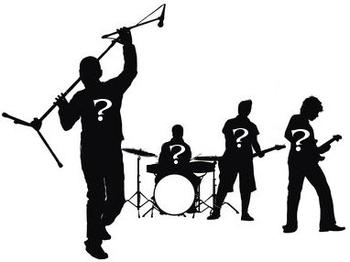The most important part of the guitar is arguably the stringing. Most guitars have six strings, and they must be tuned to certain notes in order to properly play songs. For the sake of simplicity, I'll only be discussing standard tuning on a six string guitar. Each of the six string is ordered from thickest to the thinnest. Starting with the thickest string, the progression goes E, A, D, G, B, and e. If you are having trouble remembering the order of strings, here is a sentence I was taught that will remind you of the proper order: "Eating Apples Daily Gives Big Ears."
Each string is stretched over the fretboard, also known as the neck of the guitar, where one can find the frets. The frets are the metal pieces that cross the neck of the guitar at certain intervals. This is what allows guitar player to select different notes per string. The player places finger on the string, in between two frets. If enough pressure is applied, the fret "pinches" the string at the frets location. When a string is stuck without any fingers pressing on the fretboard, it is referred to as an open note. However, when the string is pinched at a specific point, the string plays a different note. In case you forgot your high school physics, the longer a string is, the lower the frequency of its movements up and down when struck. A shorter string will have a higher frequency, therefore producing a higher note. When a string is pinched by a fret, the string is only allowed to vibrate from wherever the fret is located, down to the base of the string. The lower on the neck the fret is, the higher the note. This is why those crazy solos that rock stars are known to play are situated near the bottom of the guitar, because that is where you can play high pitched melodies and scales.
There exists overlapping of notes across the neck of the guitar. A note on one string can also be played on the next string over, but the fret that is pressed down will be different. As such, one can play a riff or melody in the mid section of the fretboard/neck, and also be able to play the exact same riff (same notes) on a different section of the neck. The fret numbers will be different, but if the strings are tuned correctly, notes can be played in parallel sections of the guitar.







